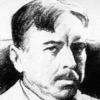Edward Thorndike

Edward Thorndike
Edward Lee "Ted" Thorndikewas an American psychologist who spent nearly his entire career at Teachers College, Columbia University. His work on Comparative psychology and the learning process led to the theory of connectionism and helped lay the scientific foundation for modern educational psychology. He also worked on solving industrial problems, such as employee exams and testing. He was a member of the board of the Psychological Corporation and served as president of the American Psychological Association in 1912. A Review...
NationalityAmerican
ProfessionScientist
Date of Birth31 August 1874
CityWilliamsburg, MA
CountryUnited States of America
Edward Thorndike quotes about
It will, of course, be understood that directly or indirectly, soon or late, every advance in the sciences of human nature will contribute to our success in controlling human nature and changing it to the advantage of the common weal.
There is no reasoning, no process of inference or comparison; there is no thinking about things, no putting two and two together; there are no ideas - the animal does not think of the box or of the food or of the act he is to perform.
Some statements concern the conscious states of the animal, what he is to himself as an inner life; others concern his original and acquired ways of response, his behavior, what he is an outside observer
The un-conscious distortion of the facts is almost harmless compared to the unconscious neglect of an animal's mental life until it verges on the unusual and marvelous.
The restriction of studies of human intellect and character to studies of conscious states was not without influence on a scientific studies of animal psychology.
To the intelligent man with an interest in human nature it must often appear strange that so much of the energy of the scientific world has been spent on the study of the body and so little on the study of the mind.
He who learns and runs away, lives to learn another day.
The function of intellect is to provide a means of modifying our reactions to the circumstances of life, so that we may secure pleasure, the symptom of welfare.
This growth in the number, speed of formation, permanence, delicacy and complexity of associations possible for an animal reaches its acme in the case of man.
Amongst the minds of animals that of man leads, not as a demigod from another planet, but as a king from the same race.
The intellectual evolution of the race consists in an increase in the number, delicacy, complexity, permanence and speed of formation of such associations.
Just as the science and art of agriculture depend upon chemistry and botany, so the art of education depends upon physiology and psychology.
So the animal finally performs in that situation only the fitting act.
On the whole, the psychological work of the last quarter of the nineteenth century emphasized the study of consciousness to the neglect of the total life of intellect and character